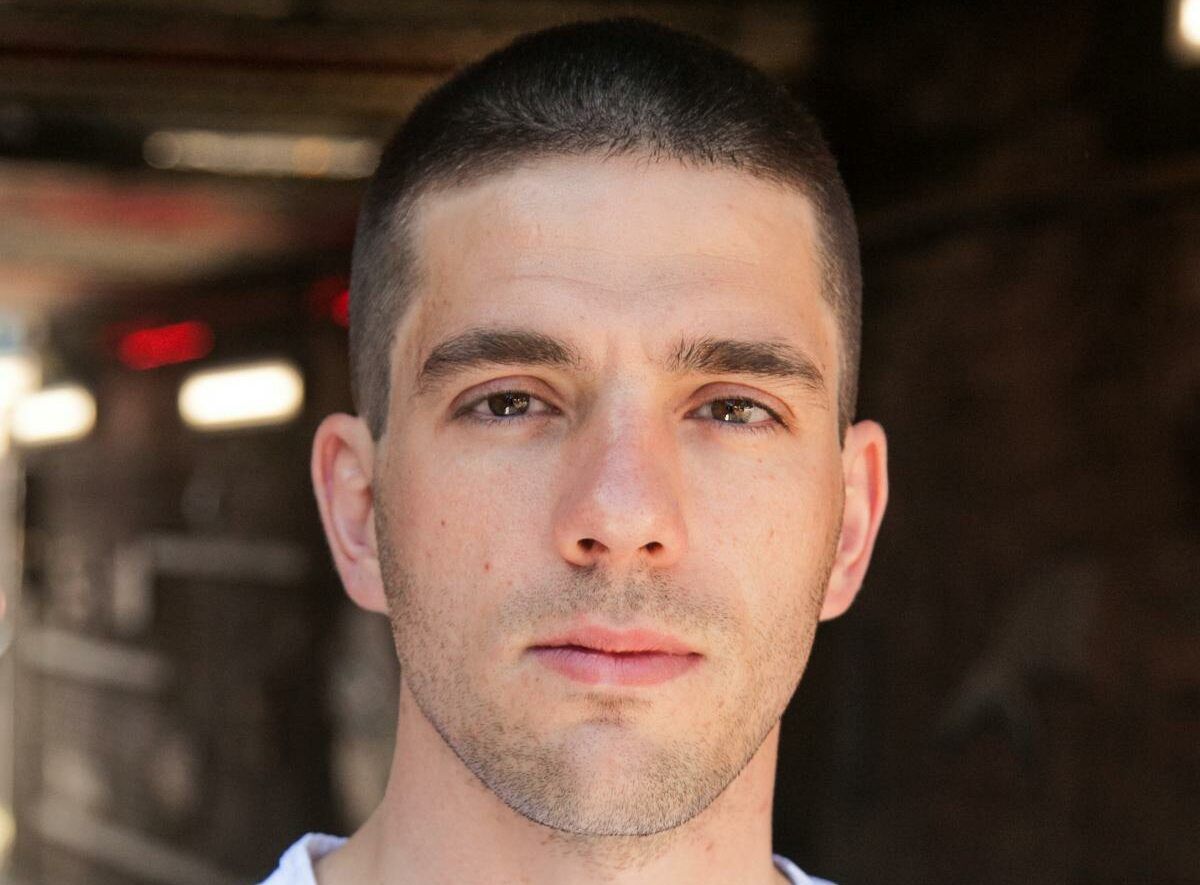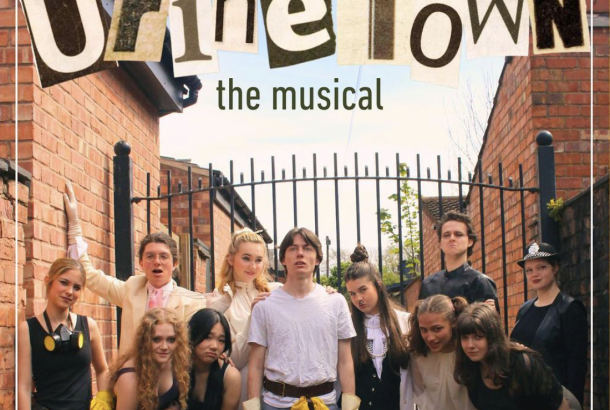Jesus Christ Superstar: In conversation with Ian McIntosh

Jesus Christ Superstar is one of Andrew Lloyd Webber’s most iconic and best-loved musicals. It was recently revived to great success at Regent’s Park Open Air Theatre. That modern adaptation is set to embark on its first UK tour, with its regional premiere taking place at the Palace Theatre in Manchester. The cast includes national treasure Julian Clary as Herod.
Ahead of the premiere, I got the chance to chat with Olivier nominee Ian McIntosh, who plays Jesus. McIntosh recently starred in We Will Rock You and is best known for starring in the original UK cast of Beautiful: The Carole King Musical, for which he was nominated for an Olivier Award.
How would you describe this show to people who have yet to see it?
I: “Well, I think a lot of people know the ending of Jesus Christ Superstar. If you don’t then I don’t know where you have been. The show is basically the story of the last seven days of Jesus Christ. It’s a story of the Last Supper and the crucifixion through the eyes of Judas, and it’s basically the conflict between Judas and Jesus prior to the crucifixion.
“It’s a rock musical written by Andrew Lloyd Webber. I personally think it’s his best musical… maybe because I [prefer] that type of singing to [his other musicals]. It was directed by Timothy Sheader, who is the Artistic Director at Regent’s Park Open Air Theatre, [where] this production was put on in 2016, and they brought it back at the Barbican Theatre in 2019. Now they are going out on a North American tour and on the UK tour.
“It’s incredibly choreographed by Drew McOnie, and it’s, honestly, just amazing rock and roll. The ensemble featured throughout the whole show is the heartbeat to it. The story of Jesus, Judas, Mary, and Pilate sort of weaves in and out of that ensemble.”
The UK tour is about to begin. How are you feeling?
I: “I feel a mixture of a lot of things at the moment because we’re currently in technical rehearsals, which is where we, as the actors, hand over to the [tech team]. It’s not our time anymore. So, what we’ve done in the rehearsal room, we’re sort of holding on to it now, whilst we slowly go through the show and add in all the elements of lighting and the sound, making sure the structure of the set is good, safe for all of us to move on, spacing with the choreograph.
“It’s like the ‘sitting on your hands’ kind of time. I want to get going and get moving but it’s not my time, and I think on Saturday we’re going to have a dress run and I can’t wait to do that! It would be so nice to have all the elements of the show in, and then we’ll know exactly what we’re playing with as actors.”
“And I think of going on tour, I mean, it’s a long tour. We’re going on till August next year. We’re going all over the place; we’re going all over the UK. I’ve got kids and it’s going to be tricky but it’s a good life. I get to play for a living, and I’ll get back to see my kids as often as I can, but I’m really glad and proud to be part of a production that I think is going to move a lot of people when they watch it. And that’s important; it’s important to me that it does that. I was in a musical called We Will Rock You recently, and that moved a lot of people, and it feels good to be a part of that. You know that you’re in something that creates this experience for people that they enjoy, and they can take away something good from it.”
Do audiences differ across the country?
I: “Yes, that is always the case; different cities have different types of people. There are cities where people don’t have as much access to the theatre, and there are cities like Manchester that have four or five theatres or even more than that. And they’ve got so many music places so they love that live experience, or they’re used to that live experience. If you go down to Cornwall, there are one or two commercial theatres.
“And [the days] differ; you always get livelier on Thursday, Friday, and Saturday, while people are always a bit more reserved as if they are saving their energy, on a Monday, Tuesday, and Wednesday.”
You open on a Monday and your press night is on Wednesday. How are you feeling about that?
I: “The previews are still very much ‘work in progress’ and we’re trying to fine-tune it. There’ll be the director and the choreographer, and the producers will be in there, and they’ll be [looking at] what needs tweaking. Then, obviously, we open on Wednesday and then we’re on Thursday, Friday, Saturday, and there’ll be the full paying audience. The creative team will go home and we will be left with the show that we’re then going to take on the road for the next year.”
I didn’t know that there are things you might change during the first days of the tour.
I: “With the previews, there are things that can change, things that can be added, within reason. It is a musical that is already set up; they have fine-tuned [things] over the years but there are things that have been [changed] when the show got moved to America: they took out the interval, and they just had it as [one-act] piece. It’s a relatively short show. If you were to take out the interval, it’s an hour and a half from the beginning to the end, and if you add in the interval, it’s an hour and 50 minutes.
“It’s pretty set in its structure because it’s musical with no spoken words and with no scenes; it’s sung-through. So, things do change, but I don’t think too much will change on this one. I think the first couple of previews are when everyone is getting settled with all the new elements.”
What’s your favourite part of the show?
I: “My favourite part that I do would be the song ‘Gethsemane (I Only Want to Say)’. This is basically Jesus’s surrender in the Garden of Gethsemane before he gets arrested. The cool thing about this version is it’s a rock and roll gig, and there’s a live band onstage; I play the guitar at the beginning of ‘Gethsemane’ and then I drop out halfway through and sing the rest of the song. So there’s this connection to the music, always, which is pretty cool in this version of the show. It’s very indie, very cool, very aesthetically pleasing, and hopefully, we do credit to a 70s kind of sound, which is what they’re trying to do. They’re trying to take it back to the old Brown album, The Jesus Christ Superstar, which was released in 1970.”
This leads me to the next question. The production is more than 50 years old now. There have been various versions and even a movie. Initially, the show was controversial; in some countries, religious people couldn’t accept this interpretation of the story or the show itself. However, the musical has become very popular. Would you still describe it as controversial?
I: “It’s tricky. I think we’re not playing the characters as Jesus being Jesus; he’s a rock and roll superstar. But it is the story of Jesus Christ because you can’t get away from that – because that’s what it’s written about. Judas is also in the band; Mary is a new person in the band. The band on the road tell a story, and within that story, they tell the story of Jesus Christ, and we make it very relatable to a person today. We’re talking about idolising people, mob mentality, where you can be everybody’s best friend, and then, all of a sudden, they turn on you. You can be a superstar and then you can be cancelled. As quickly as everybody follows you, they can unfollow, unfollow, unfollow. We’re playing on that aspect of it.
“[Some people criticise the musical] because it didn’t show the resurrection, and the question is, ‘What’s all this for then? What’s all this suffering for if there is no resurrection?’ I’d love to ask Andrew Lloyd Webber why there was no resurrection. I think the other [problem] was about Judas, as [the show makes you] empathetic towards Judas. A lot of people kicked off about that.
“Rock and roll was born out of gospel music. Ray Charles started singing gospel songs and people used to kick off with him because it was demonising gospel music – and look what was born out of that. Look at how much incredible music was born out of that. It was innovative.
“I think that with this kind of show, you don’t know if is it bad or if it’s good. Has it passed on some of the story of Jesus Christ to people who don’t have any knowledge of it? Has it caused more harm than good? Has it caused more good than harm? It is what it is; people can have their problems with it and people can love it and people can think that I’m just an actor onstage. We’ll find out. We might have people protesting at the stage door, maybe, but I don’t think they would. I hope not, anyway.
“It’s a huge, huge musical. Something doesn’t run for 50 years if it’s not got the legs to last that long; if there’s not something that it is doing to an audience.”
You can catch Ian McIntosh in Jesus Christ Superstar at Palace Theatre Manchester from September 11-23 and on tour around the UK until August 17 2024.







